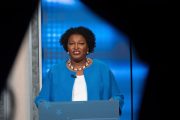
If You Can’t Sell the Fake, Sell the Fizzle.
“I read but a single paper, and that hastily. I find Horace and Tacitus so much better writers than the champions of the gazettes, that I lay those down to take up these with great reluctance.”
That is how Thomas Jefferson expressed his disdain for journalists of his day in favor of the renowned Latin chroniclers of history. Jefferson knew something of the biases and agendas on the part of members of the fourth estate. Newspapermen were, as they are today, jealous guardians of their reputation as objective servants of the public good with no other guide but truth.
So earnest is journalism’s purported devotion to objectivity, the Society of Professional Journalists have promulgated an ethical code expressing the principles of objectivity to which all that guild’s members are encouraged to adhere.
The preamble to that code states as follows:
Members of the Society of Professional Journalists believe that public enlightenment is the forerunner of justice and the foundation of democracy. The duty of the journalist is to further those ends by seeking truth and providing a fair and comprehensive account of events and issues. Conscientious journalists from all media and specialties strive to serve the public with thoroughness and honesty. Professional integrity is the cornerstone of a journalist's credibility. Members of the Society share a dedication to ethical behavior and adopt this code to declare the Society's principles and standards of practice.
These standards are inarguably noble and worthy of observance. Truly, the setting of such lofty ideals for any profession is admirable, but more especially for an avocation afforded Constitutional protection. Unfortunately, there is at least as much bias in the press today as in the heyday of cutthroat journalistic character assassination in days of the early republic.
Public distrust of journalists is manifest in poll after poll. The results of a nationwide survey of 2,302 Americans conducted by the Harris Poll found that 54 percent of Americans do not trust the media.
Understandably, most hard-working, honest journalists and their equally circumspect editors lament the poor opinion held of them by so many of their fellow citizens. Reporters from across the nation, from the smallest weekly to the largest metropolitan daily, see themselves as providing an essential civic function and thus resent the cynicism with which that role is viewed.
For those in the media dismayed by the disconnect between their professed objectivism and the public’s perception of their motives as driven by a left-leaning agenda and profit, perhaps the first step would be to look in the mirror. Or The New York Times.
On Monday, March 29, 2010, Times reporter Adam Nagourney (recently tapped to head the paper’s Los Angeles bureau) wrote an engaging article recounting the reception experienced by lawmakers in their home districts in the aftermath of the vote on the health care laws. Of itself, such an account would be interesting as stories of threats of violence made against legislatures who voted in favor of the overhaul draw the public’s attention to the repercussions of a yea vote on the controversial measure.
The problem with Mr. Nagourney’s article, therefore, is not the topic, but the manner in which he describes the events he purports to objectively record.
The first sentence of the piece records the religious acclamations of joy with which constituents greeted Representative Alan Grayson (D-Fla.) The inference logically drawn from Mr. Nagourney’s hallelujah chorus tableau is that while there may be pockets of opposition, the average Floridian is pleased to the point of praise over the health care vote.
The local papers tell a very different story, however. According to a story published in the Tampa Tribune, 54 percent of Florida voters opposed the bill that was signed last week by President Obama. That hardly sounds like the rows of crowded pews in the “amen corner” as intimated by Mr. Nagourney’s version of the situation in the Sunshine State.
The next paragraph in Nagourney’s tale concerns the sentiment in Georgia, particularly in the 12th Congressional District, home of Representative John Barrow, a Democrat who voted against passage of the Patient Protection and Affordable Health Care Act.
“[Representative Barrow] was embraced as a hero by white constituents. At the same event, distressed black voters assailed him….” This is the second paragraph and Mr. Nagourney stoops to the reprehensible gambit of race baiting. By portraying white voters as universally supportive of their congressman and his vote and black voters as wholly “distressed” merely serves to foment racial disharmony that professedly is contrary to the superior sense of racial equality possessed by liberals, specifically liberal reporters.
Within two paragraphs, Nagourney reinserts a racial component into the debate by proclaiming that the health care vote has “divided the country by party, race, and region.” As to the first, that is certainly true as not a single Republican voted for the health care “reform” bills.
As for the race gap in those who support the health care bill, where’s the proof? Notably, there is an article in the Washington Post essentially breaking down the data from a poll conducted by the paper. Contrary to the New York Times piece, neither the article in the Post, nor the underlying raw polling data mention race as a significant determiner of one’s opinion of health care.
Later, in what seems like utopian disconnect (especially inexcusable in a reporter for the New York Times), Mr. Nagourney reckons that the fire in the belly of health care foes has been extinguished now that the battle has past (although undoubtedly the war rages on in the states and soon in federal courts). His colleagues’ stories to the contrary, Mr. Nagourney has chosen to not let the facts get in the way of a good story.
Finally, the last bit of veiled editorial thrust in Mr. Nagourney article is a quote from Representative Grayson of Florida. “A just society is one that shelters the homeless, feeds the hungry, that heals the sick.” While there is something almost messianic in Grayson’s definition of a just society, a more time-tested definition is given elsewhere.
For example, James Madison (the man rightly known as the Father of the Constitution) wrote that:
Government is instituted to protect property of any sort; as well that which lies in the various rights of individuals, as that which the term particularly expresses. This being the end of government, that alone is a just government which impartially secures to every man whatever is his own.
Curiously, Mr. Nagourney’s own newspaper has chronicled the various tax increases promulgated in the new law. Nothing could be less protective of the property rights of individuals than the tax hikes and compulsory purchase of medical care insurance, both of which are prominent provisions of the new law.
Therefore, because of the obvious and odious bias parading as journalism on the part of Mr. Nagourney, journalists will find themselves continually vexed in their efforts to regain the trust and respect of readers. The cure for this ill, however, might be the self-policing of reporters and editors of articles written on their watch.



